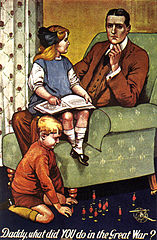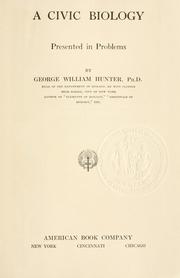
How would the creationism-evolution controversy have been different if World War I had never happened? Today the question is answered by Adam Shapiro, Lecturer in Intellectual and Cultural History at Birkbeck, University of London, and author of Trying Biology: The Scopes Trial, Textbooks, and Antievolution in American Schools (2013).
A scenario in which the First World War did not take place entails a slew of other changes to history. Even keeping these to a minimum, the fate of American antievolutionism would be very different, but perhaps not for obvious reasons. Religious objections to evolution were already widely present by the late nineteenth century. The influential series of publications called The Fundamentals (released 1910-1915) had already published most of its most explicitly antievolutionary articles before WWI started. There’s no reason to think that these American religious objections to evolution were substantially affected by the war itself, or that organized Fundamentalism wouldn’t have emerged in the 1920s without the war.
 But by the 1920s, antievolutionism wasn’t just a religious movement; it was also a school movement, responding to the creation of a new biology curriculum and the expansion of compulsory high schools. Those trends in education reform would also not be impeded by a lack of war. The first textbook to really push the new curriculum, George W. Hunter’s Civic Biology, was already in the works, and was published in 1914, just a couple months after the assassination of Archduke Ferdinand. The push to expand compulsory schooling, build more high schools, and open more teacher training institutions was also well underway. It’s reasonable to conclude that the long-term trends in American education and religion would not have changed much.
But by the 1920s, antievolutionism wasn’t just a religious movement; it was also a school movement, responding to the creation of a new biology curriculum and the expansion of compulsory high schools. Those trends in education reform would also not be impeded by a lack of war. The first textbook to really push the new curriculum, George W. Hunter’s Civic Biology, was already in the works, and was published in 1914, just a couple months after the assassination of Archduke Ferdinand. The push to expand compulsory schooling, build more high schools, and open more teacher training institutions was also well underway. It’s reasonable to conclude that the long-term trends in American education and religion would not have changed much.
But the intersection of those trends might have resolved quite differently. If William Jennings Bryan had not resigned as Secretary of State and remained in Wilson’s cabinet until the end of his term in 1921, would he still have turned his attention to antievolution? While some people point to Bryan’s reaction to accounts of German “social Darwinism” as a major motivation for his activism, James Leuba’s study, published in 1916, on the effects of science education on religious belief might have been a more compelling factor for Bryan. Since evolution would still be an issue among churches, it’s likely he still would have been deeply involved in the Fundamentalist–Modernist controversy in his own Presbyterian denomination in 1923. So Bryan might have still been campaigning against teaching evolution. But without the war, a small organization that got its start defending conscientious objectors to the draft might never have formed, and perhaps there wouldn’t be an ACLU, or anything like it, for several more years.
Where there would likely be a real difference is in the legal arena. The Nebraska school teacher whose 1924 civil suit was the first evolution trial in America probably wouldn’t have had such an antagonistic relationship with one of the local church leaders if the state hadn’t enacted the anti-German Siman Act right after the war. Without the war’s impact on the price of textbooks, Tennessee probably would have replaced Hunter’s Civic Biology in 1924, instead of postponing a new adoption until 1925. Assuming the textbook that the state did pick in 1925 had been adopted a year earlier, John W. Butler might not have even felt the need to propose the antievolution law; even if the law did come to pass, Scopes wouldn’t have thought he’d taught evolution from the new textbook. And without an ACLU, the idea of a test case or celebrity attorneys certainly wouldn’t have come about.
If a world without a Great War is also a world without a Scopes trial, then the whole history of evolution and creation after 1925 would have been extremely different. Antievolutionism would probably have succeeded in unofficially muting textbook content and considered that a victory. Without the Scopes trial, most antievolutionists (even today) probably wouldn’t insist on a young Earth. Almost no creationists before 1925 did, but Clarence Darrow’s caricature of Bryan’s Biblical literalism popularized that interpretation.
